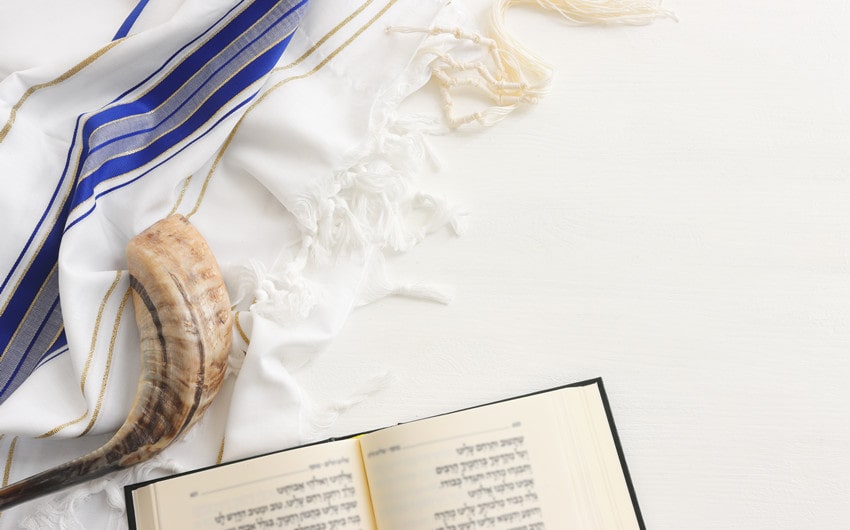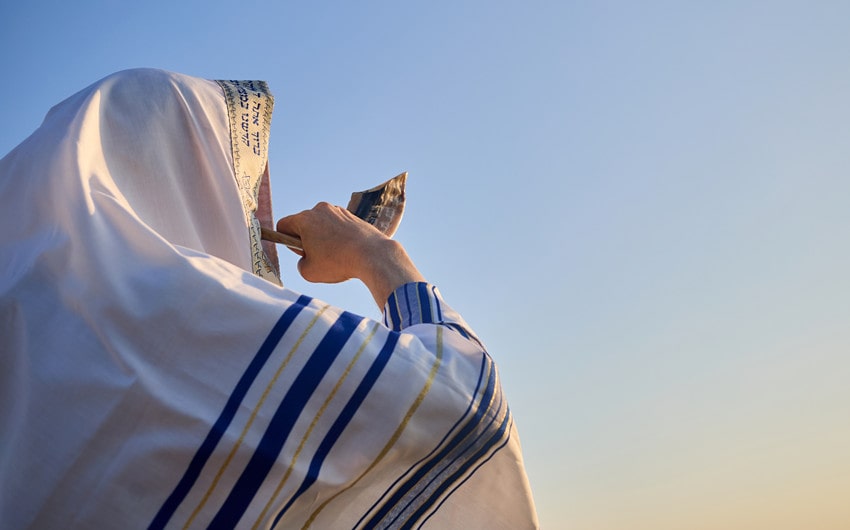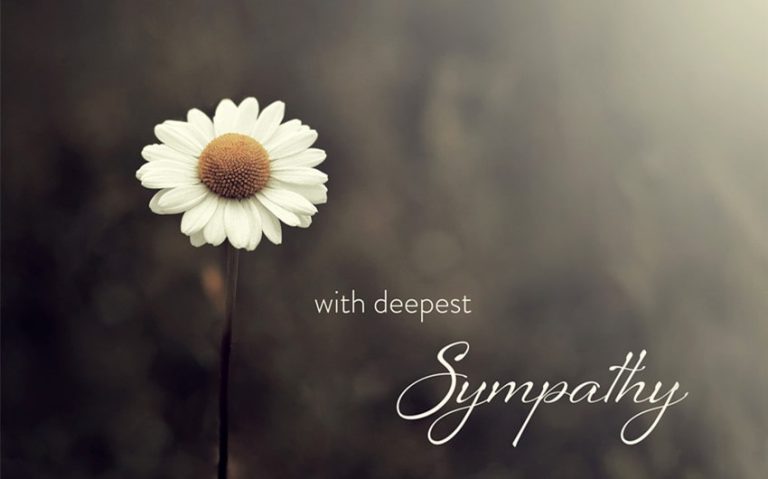What to Say to Someone on Yom Kippur: 80 Suggestions
Yom Kippur, also known as the Day of Atonement, is a sacred time for reflection, prayer, and seeking forgiveness in the Jewish faith. It’s a solemn day when many people fast, engage in deep introspection, and seek spiritual renewal. If you have friends, family members, or colleagues observing Yom Kippur, you might wonder what to say to someone on Yom Kippur to express your respect and support.
Knowing the right words can make a meaningful impact, showing your understanding of the day’s significance. Whether it’s offering a traditional greeting or wishing someone an easy fast, a thoughtful message can help you connect sincerely.
Traditional Yom Kippur Greetings
Yom Kippur is a solemn and spiritually significant day, and traditional greetings reflect the seriousness and purpose of the holiday. These phrases often convey wishes for forgiveness, spiritual renewal, and a meaningful fast. Using traditional Yom Kippur greetings can show your respect for the holiday and your understanding of its importance. Here are some examples of traditional and appropriate phrases you can use.
- “G’mar Chatimah Tovah” (May you be sealed in the Book of Life).
- “G’mar Tov” (A good completion).
- “Wishing you an easy fast.”
- “May your prayers be answered and bring you peace.”
- “May you find comfort and renewal this Yom Kippur.”
- “Wishing you a meaningful and reflective fast.”
- “G’mar Chatimah Tovah to you and your loved ones.”
- “May you be inscribed and sealed for a good year.”
- “Wishing you strength and peace on this holy day.”
- “May you have a blessed Yom Kippur.”
- “G’mar Tov, and may your reflections bring you clarity.”
- “Wishing you a day of spiritual renewal and forgiveness.”
- “May you find forgiveness and peace within your heart.”
- “Hoping this Yom Kippur brings you healing and renewal.”
- “May your fast be meaningful, and your prayers be heard.”
- “G’mar Chatimah Tovah, and may you find peace today.”
- “Sending you blessings and strength on this holy day.”
- “Wishing you a day filled with introspection and hope.”
- “May this Yom Kippur bring you closer to peace and understanding.”
- “Hoping your fast is easy, and your heart is full of peace.”

Wishing Someone a Meaningful Fast
For those observing Yom Kippur, fasting is a central part of the day, representing a spiritual cleanse and an act of repentance. Wishing someone a meaningful fast acknowledges their devotion and the significance of their observance. Here are some thoughtful ways to wish someone a meaningful and supportive fast.
- “Wishing you a meaningful and easy fast today.”
- “May your fast be full of purpose and spiritual growth.”
- “Hoping your fast is smooth and brings you peace.”
- “Wishing you strength and reflection during your fast.”
- “May this fast bring you closer to spiritual renewal.”
- “Hoping your fast is meaningful and filled with clarity.”
- “Wishing you a day of reflection and spiritual cleansing.”
- “May your fast be a source of strength and healing.”
- “Thinking of you and hoping your fast is peaceful.”
- “Wishing you an easy and fulfilling fast this Yom Kippur.”
- “May your fast be one of enlightenment and renewal.”
- “Hoping your fast is meaningful and helps guide you forward.”
- “Wishing you a purposeful and serene fast.”
- “May you find strength and insight in your fast today.”
- “Hoping your fast leads to inner peace and clarity.”
- “Wishing you a day of spiritual reflection and strength.”
- “May this fast help bring you a sense of purpose and healing.”
- “Wishing you an easy fast filled with meaningful moments.”
- “Hoping your fast brings you the peace and insight you seek.”
- “Wishing you strength, patience, and a meaningful fast.”
Messages for After Yom Kippur
Once Yom Kippur has ended, many people feel a sense of renewal and relief. It’s a time to wish them well and express hope for a positive year ahead. Here are some respectful and thoughtful messages for after Yom Kippur.
- “I hope your fast was meaningful and left you feeling renewed.”
- “Wishing you peace and joy as you begin the new year.”
- “May this Yom Kippur bring you blessings and a fresh start.”
- “I hope today brought you comfort and spiritual renewal.”
- “Wishing you a year filled with peace, health, and happiness.”
- “I hope you found clarity and healing today. Wishing you a peaceful year ahead.”
- “May the end of Yom Kippur bring you hope and new beginnings.”
- “Hoping your reflections from today bring you strength for the year ahead.”
- “Wishing you a renewed spirit and a heart full of peace.”
- “I hope your prayers and reflections were meaningful.”
- “May you carry the peace and purpose of today into the coming year.”
- “Wishing you a sense of fulfillment and renewal after Yom Kippur.”
- “I hope today has brought you a feeling of spiritual rejuvenation.”
- “May the lessons and reflections of Yom Kippur guide you forward.”
- “Hoping this day of atonement left you with peace and clarity.”
- “Wishing you a blessed and joyful start to the new year.”
- “I hope you feel a renewed sense of purpose and hope.”
- “Wishing you a fresh start filled with love and blessings.”
- “May today’s reflections help bring you joy and wisdom all year long.”
- “I hope you ended this day with a heart full of peace and hope.”
General Words of Support and Respect
Even if you don’t observe Yom Kippur, showing support and respect for someone who does can be meaningful. Offering simple yet thoughtful words can demonstrate your care and understanding of the holiday’s importance. Here are some ways to express your support and respect.
- “Thinking of you on this sacred and meaningful day.”
- “Wishing you peace and blessings as you observe Yom Kippur.”
- “Sending you thoughts of strength and reflection today.”
- “I’m here if you need anything as you reflect and observe.”
- “Wishing you a day filled with spiritual fulfillment and peace.”
- “Hoping today brings you comfort, strength, and clarity.”
- “Sending you my best wishes for a meaningful Yom Kippur.”
- “May this day bring you the peace and insight you’re seeking.”
- “Wishing you a day of deep reflection and spiritual healing.”
- “Thinking of you and sending support on this holy day.”
- “Hoping today brings you a sense of renewal and purpose.”
- “Wishing you strength and serenity on this important day.”
- “May your reflections today bring you closer to peace.”
- “I’m thinking of you and wishing you blessings today.”
- “Wishing you a day that brings you hope and healing.”
- “Sending you positive energy and peaceful thoughts today.”
- “May this day be full of meaningful reflection and purpose.”
- “I hope today brings you peace and a sense of renewal.”
- “Wishing you strength and clarity on this sacred day.”
- “Thinking of you with respect and support as you observe Yom Kippur.”
What Not to Say on Yom Kippur
Yom Kippur is a solemn and sacred day focused on reflection, repentance, and spiritual renewal. It’s important to be sensitive and mindful of the holiday’s significance when speaking to someone who is observing. Certain phrases or comments may come off as disrespectful, insensitive, or out of touch with the day’s gravity. Here are some examples of things you should avoid saying on Yom Kippur, along with reasons why.
1. “Happy Yom Kippur!”
Reason: Yom Kippur is not a festive holiday; it is solemn and focused on atonement and repentance. Using “happy” in the greeting may seem tone-deaf and undermine the day’s seriousness.
2. “I hope you’re enjoying your day off!”
Reason: For those observing, Yom Kippur is not a day of rest or leisure but a day of fasting, reflection, and prayer. This comment minimizes the spiritual and emotional effort involved in observing the holiday.
3. “Why do you have to fast? That sounds awful!”
Reason: Fasting on Yom Kippur is a deeply meaningful and sacred practice for many. Criticizing or questioning the tradition can come across as disrespectful and dismissive of the religious significance behind it.
4. “Just take a bite if you get hungry; it won’t hurt.”
Reason: Encouraging someone to break their fast is disrespectful, as the fast is a crucial part of Yom Kippur. It shows a lack of understanding and dismisses the importance of the spiritual commitment.
5. “At least you’ll lose some weight from fasting!”
Reason: This comment is inappropriate and trivializes the spiritual purpose of fasting, reducing a meaningful religious observance to a superficial concern about appearance or diet.
6. “Do you really believe fasting and praying make a difference?”
Reason: Questioning someone’s faith or religious practices is insensitive and intrusive, especially on one of the holiest days in Judaism. It can make the person feel judged or uncomfortable about their beliefs.
7. “So, are you forgiven now?”
Reason: This comment oversimplifies the profound and deeply personal process of repentance and atonement. Forgiveness is a complex spiritual journey, and making light of it can seem disrespectful.
8. “You can’t even drink water? That’s extreme!”
Reason: While fasting, including abstaining from water, is a serious commitment, it’s an essential aspect of the observance. Calling it “extreme” can come off as judgmental and dismissive of the spiritual meaning behind the practice.
9. “Can’t you just skip it this year?”
Reason: Yom Kippur is one of the most significant days in the Jewish calendar, and observant individuals often prepare for it in a deeply meaningful way. Suggesting they skip it minimizes the importance of their faith and observance.
10. “When’s the party after this?”
Reason: While there is often a meal to break the fast after Yom Kippur, the day itself is not about celebration or partying. Making this comment can seem irreverent and show a lack of understanding of the day’s solemnity.







